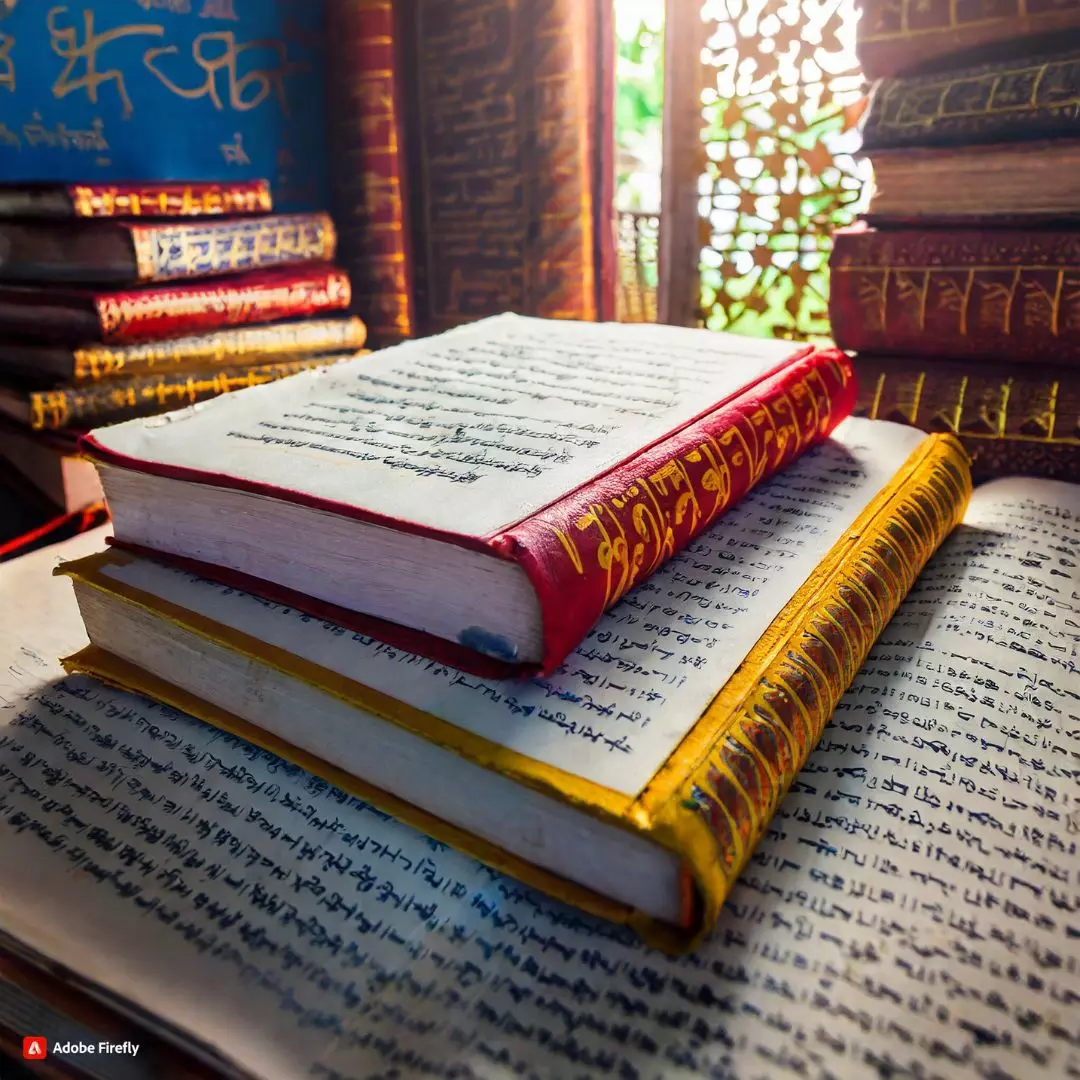In the tapestry of world literature, Kalidasa stands as the resplendent gem of Sanskrit eloquence, earning him the title “India’s Shakespeare.” His artistic finesse harmonizes the beauty of nature with profound human emotions, a quality universally recognized by both Eastern and Western critics.
Kalidasa’s influence echoes through the corridors of time, transcending cultural boundaries. His enduring relevance has shaped the minds of medieval mentors and ignited the flame of the Indian Renaissance in luminaries like Vivekananda and Tagore. Kalidasa’s luminosity extends globally, fostering deeper understanding and appreciation between India and the rest of the world.
Legends shroud Kalidasa’s life in mystery. From a supposed blockhead married to a princess, he rose to poetic brilliance through penance, as the divine Gauri bestowed upon him unparalleled poetic genius. Tragically, the poet met his demise, allegedly murdered by a courtesan in Ceylon, weaving a tale that resonates through the ages.
Kalidasa’s birthplace remains a matter of speculation, with various regions in India laying claim. However, a close examination of his works, particularly the enchanting description of Ujjain in Meghaduta, hints at an undeniable personal connection, situating Kalidasa within the embrace of Ujjain during the period between the 2nd century BC and the 5th century AD.
Kalidasa’s Impact: A Cross-Cultural Reverberation
Heralded as the supreme Sanskrit poet and dramatist, Kalidasa’s impact reverberates through Indian literature. His poetic style resonates across the ages, influencing poets from ancient times to the modern era. Beyond India’s borders, Sir William Jones introduced Kalidasa to the Western world in the 18th century, initiating a cascade of translations that positioned Kalidasa alongside the revered Shakespeare.
Verses Painted in Seasons: Kalidasa’s lyrical poem “Ritusamhara” unfolds a vivid canvas of India’s six seasons in 144 stanzas. The richness of his descriptions captivates, celebrating the beauty of nature in varying rhythms.
A Symphony in the Clouds: In “Meghadutam,” Kalidasa weaves a poetic tapestry where a Yaksha, banished by a curse, sends a message to his beloved through a cloud. This masterpiece, though smaller in extent, captures the essence of separation and longing.
Epics of Love and Kingship
Kumarasambhava: This classical poem, spread across 17 cantos, narrates the mythical love and marriage of Shiva and Parvati. Kalidasa’s portrayal of divine and mortal realms, coupled with rich imagination, draws parallels to Shakespeare’s brilliance.
Raghuvansham: A long classical poem spanning 19 cantos, “Raghuvansha,” traces the lineage of illustrious kings from the Raghu dynasty. Monier Williams aptly compares Kalidasa to Shakespeare, emphasizing the richness of his poetic genius.
Dramatic Artistry: Kalidasa’s dramatic prowess shines in timeless plays that traverse realms of love, destiny, and celestial beings.
Malavikagnimitram: A five-act drama, “Malavikagnimitram,” captures the courtly love of King Agnimitra for the beautiful Malavika. The plot unfolds swiftly and enjoyably, keeping the audience engaged until the end.
Vikramorvashiyam: In “Vikramorvashiya,” the romantic saga unfolds between King Pururavas and the celestial nymph Urvashi. Fate intervenes, testing the endurance of their love, creating a narrative that has resonated across cultures.
Abhijnanashakuntalam: The magnum opus, “Abhijnanashakuntalam,” spans seven acts, recounting the love story of King Dushyanta and the hermit girl Shakuntala. Revered as the epitome of dramatic art in Sanskrit literature, it garnered admiration from Goethe, who exclaimed, “I name thee ‘Shakuntala,’ and all at once is said.”
Kalidasa: The Enigma in Time
Kalidasa’s life remains cloaked in the veils of antiquity, his legacy immortalized through verses that transcend temporal confines. Whether navigating the seasons in “Ritusamhara” or exploring the celestial realms in “Kumarasambhava,” Kalidasa’s poetic brilliance continues to enchant readers, positioning him as the epitome of Sanskrit literary excellence.
As we unravel the pages of Kalidasa’s works, we find not just a poet but a timeless muse, echoing through the corridors of literary history. His words, like an everlasting melody, resonate across cultures, inviting readers to explore the ethereal realms of emotion, nature, and the human experience. In the grand tapestry of world literature, Kalidasa’s legacy stands tall—a beacon of artistic brilliance that transcends the boundaries of time and language.
Also Read: Dawn’s Delight: The Enchanting Tradition Of Kolam Art In Southern India












